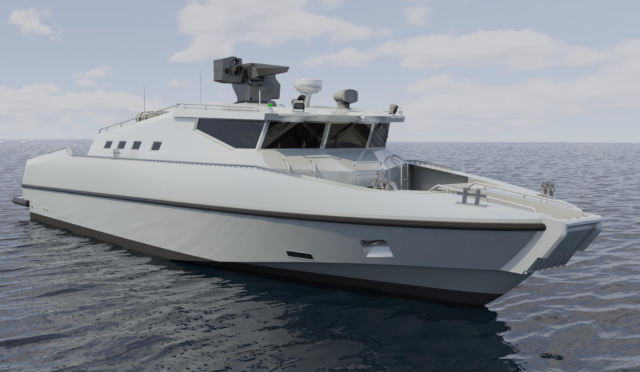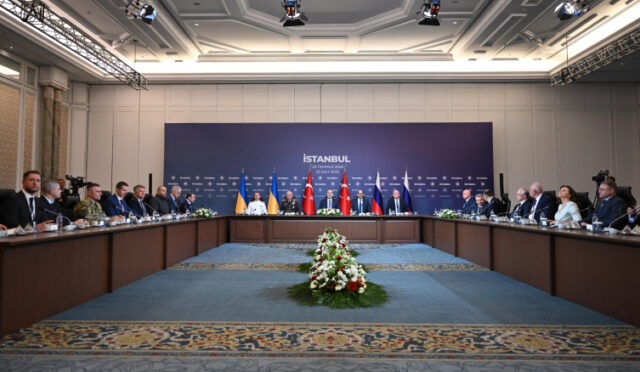European Union Plans €800 Billion Defense Spending Surge
**The European Union has approved a substantial initiative aimed at boosting military spending across Europe by a staggering total of €800 billion as part of the 2030 Defense Plan. This development was reported by Defense News, stating that the European Commission, which serves as the EU’s executive arm, recommends that member states increase their investments in joint defense procurements within the bloc. This strategic move is framed within an overarching goal to establish a formidable military deterrent against potential threats from Russia by the year 2030.**
The defense plans come alongside a proposal for €150 billion in EU-backed loans designated for collaborative defense procurements involving two or more member nations or partner states, including Norway, Switzerland, and Ukraine. A detailed 23-page bulletin calls for escalated defense expenditures, pinpointing vital areas necessitating investment such as air defense systems, military mobility enhancements, unmanned aerial vehicles (UAVs), and strategic enabling technologies.
Streamlining Defense Collaboration Across Europe
The bulletin further advocates for the establishment of a cohesive market for defense equipment throughout Europe, aiming to simplify existing procurement rules and facilitate the transfer of defense products within the EU. It also emphasizes the mutual recognition of certifications and permits among member states, thus promoting a more integrated defense procurement process.
Moreover, in a week focused on bolstering defense capabilities, EU leaders approved another significant plan on March 20, which outlines the ambitious €800 billion spending increase. Notably, this proposal currently excludes the involvement of the United Kingdom, Turkey, and the United States. Nonetheless, the European Commission highlighted that defense entities and products from partner countries could still participate in joint procurements, pending satisfactory agreements on financial conditions and supply security.
Strengthening Ties with the United Kingdom
Kaja Kallas, who serves as the EU’s High Representative for Foreign Affairs and Security Policy, remarked on ongoing efforts to establish a defense and security partnership with the United Kingdom. She expressed optimism about achieving a bilateral agreement to enhance EU-UK relations during the upcoming summit slated for May. Kallas characterized the UK as “a significant European ally” and underscored the necessity of improving defense collaboration.
As part of this coordinated defense initiative, European Defense and Space Commissioner Kubilius announced that the European Commission aims to explore opportunities for common European defense interests to be presented to the European Council. He emphasized that it is crucial for member states to determine the defense projects that will be prioritized moving forward.
A Comprehensive Defense Strategy for Europe
The 2030 Defense Plan, recently proposed by the European Commission, envisions that member nations will collectively allocate around €800 billion for military expenditures over the next four years. This scheme not only entails the aforementioned EU-backed loans but also envisions loosening financial regulations to enable countries to enhance their defense budgets.
The program aimed at Strengthening Common Procurement of the European Defense Industry (EDIRPA) highlights existing gaps within the EU’s defense capabilities, particularly in air and missile defense, artillery, ammunition, drones, military mobility, artificial intelligence, electronic warfare, and strategic capabilities. Kallas stated succinctly, “All of these require significant costs,” emphasizing the collaborative nature of these defense requirements as regional issues that transcend national boundaries.
Setting New Defense Spending Targets
In her comments, Kallas refrained from specifying an exact figure that EU member states should aim for regarding military spending. However, she did indicate that the new target would exceed the previous benchmark of 2%. This shift underscores a growing recognition of the need for increased defense readiness amid evolving global security dynamics.
The defense bulletin recommends that the European Commission should act as a centralized purchasing authority on behalf of member states. Nevertheless, Kallas pointed out the existence of bodies such as the European Defense Agency, which are not being utilized to their full potential. Kubilius reinforced the importance of joint defense procurements as a key strategy to alleviate systemic issues across Europe’s fragmented defense industry, which has been costly given the significant money currently spent outside of the EU’s own defense sector.







